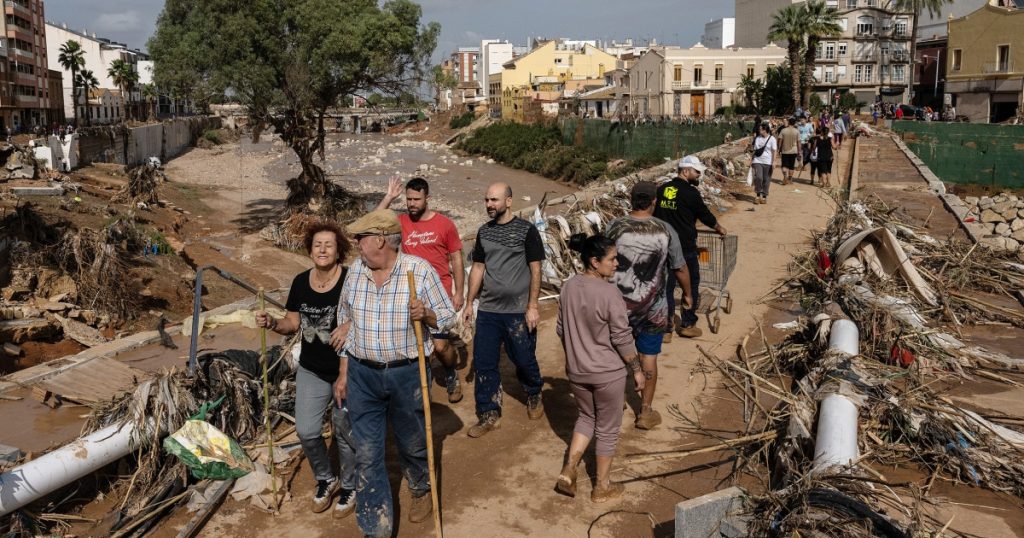The recent floods in Spain have caused a massive number of deaths, making it the worst natural disaster in living memory. The tragedy has raised questions about how this could happen in a European Union country known for public safety. The flooding devastated the region, leaving many families mourning lost loved ones and thousands of people with shattered livelihoods due to the deluge. Streets were filled with people seeking basic supplies, as cars were ruined and the roads were impassable due to mud and debris.
Criticism has been aimed at the Valencian regional government for not sending out flood warnings to mobile phones until 8 p.m. on Tuesday, after the flooding had already begun in some areas. This was well after the national weather agency issued a red alert indicating heavy rains. In response, Valencia regional President Carlos Mazón defended his administration’s management of the crisis, stating that all supervisors followed the standard protocol coordinated by Spain’s central government. The Interior Ministry clarified that regional administrations are responsible for sending alerts to warn the population of possible flooding and other natural disasters.
Mazón faced further criticism for his earlier announcement that the storm front would weaken by 6 p.m., which did not happen. The extreme weather event took a devastating toll on the region, and while difficult to predict or prepare for, Valencia has seen autumn storms and floods in the past, though not on this scale. The size and violence of this storm were unprecedented, making it a challenging situation for any administration to handle effectively.
As rescuers continued to recover bodies from the mud and debris, anger grew among the affected communities, mourning their losses and dealing with the aftermath of the destruction. Many individuals were left without homes, vehicles, and basic supplies, leading to a sense of desperation in the region. The tragic consequences of the floods highlight the need for effective disaster preparedness and response measures to prevent such devastation in the future.
The floods have brought to light shortcomings in the warning systems and emergency response mechanisms in place in the region. The delayed alert notifications and inaccurate weather forecasts contributed to the severity of the disaster, impacting the ability of residents to evacuate and seek safety. Moving forward, there is a call for improvements in communication, coordination, and resource allocation to ensure better preparedness for potential natural disasters in the future.
The unprecedented scale and impact of the floods have led to calls for accountability and transparency in the handling of the crisis by government authorities. The Valencian regional government and its officials are under scrutiny for their actions and decisions during the disaster. There is a growing demand for accountability, justice, and assistance for the affected communities as they begin the long process of recovery and rebuilding. The tragic events serve as a stark reminder of the vulnerability of communities to natural disasters and the importance of effective governance and response mechanisms in mitigating their impact.












